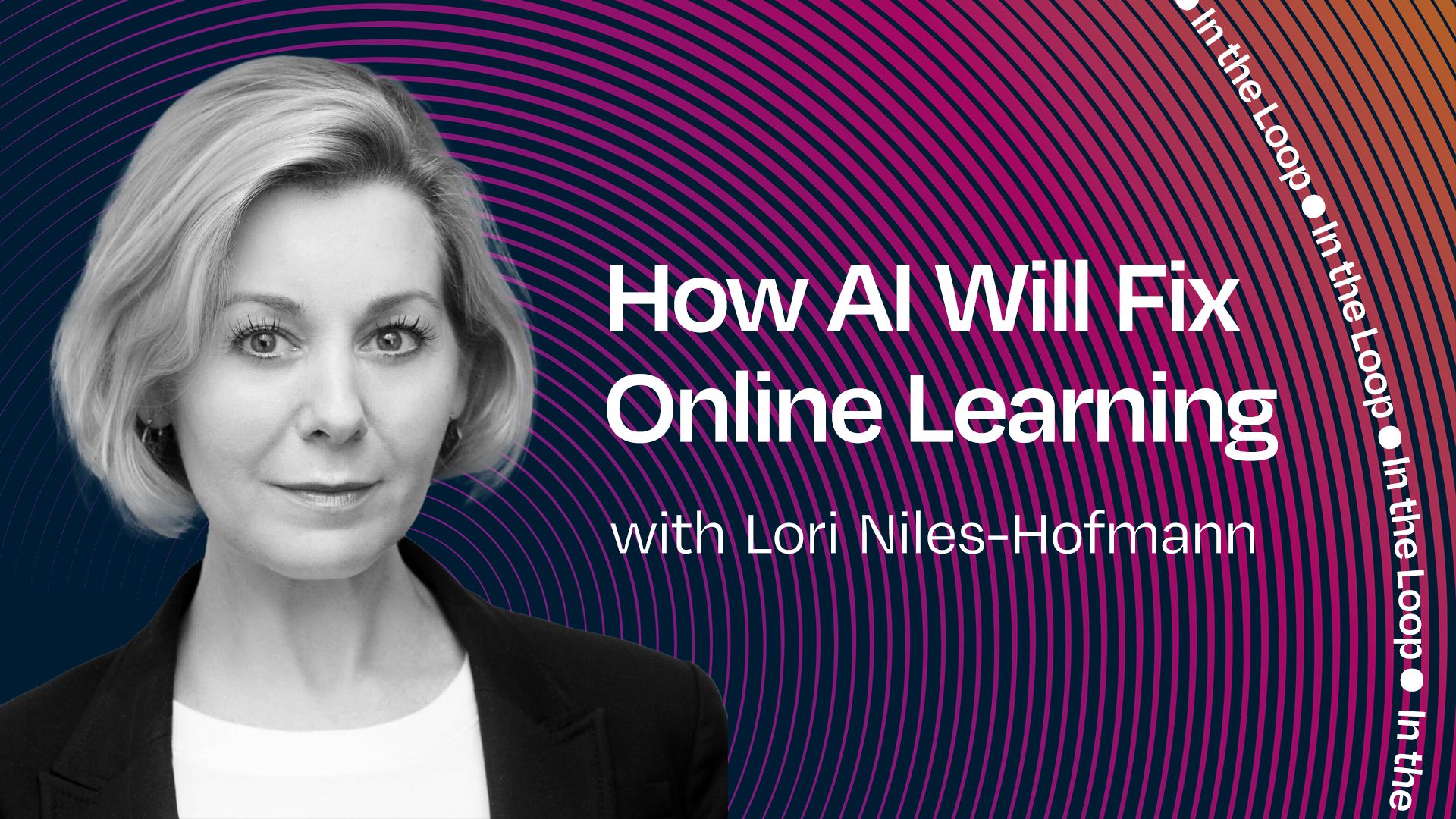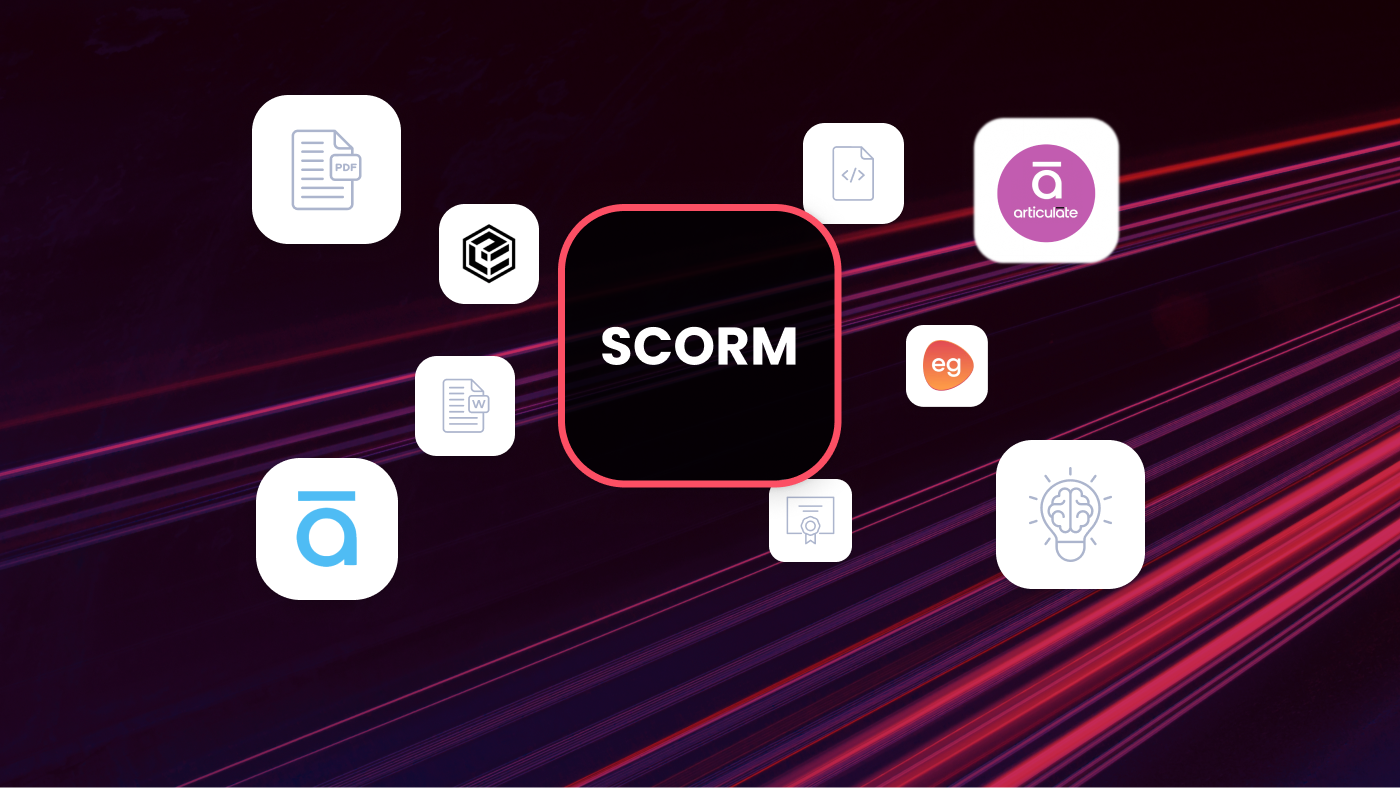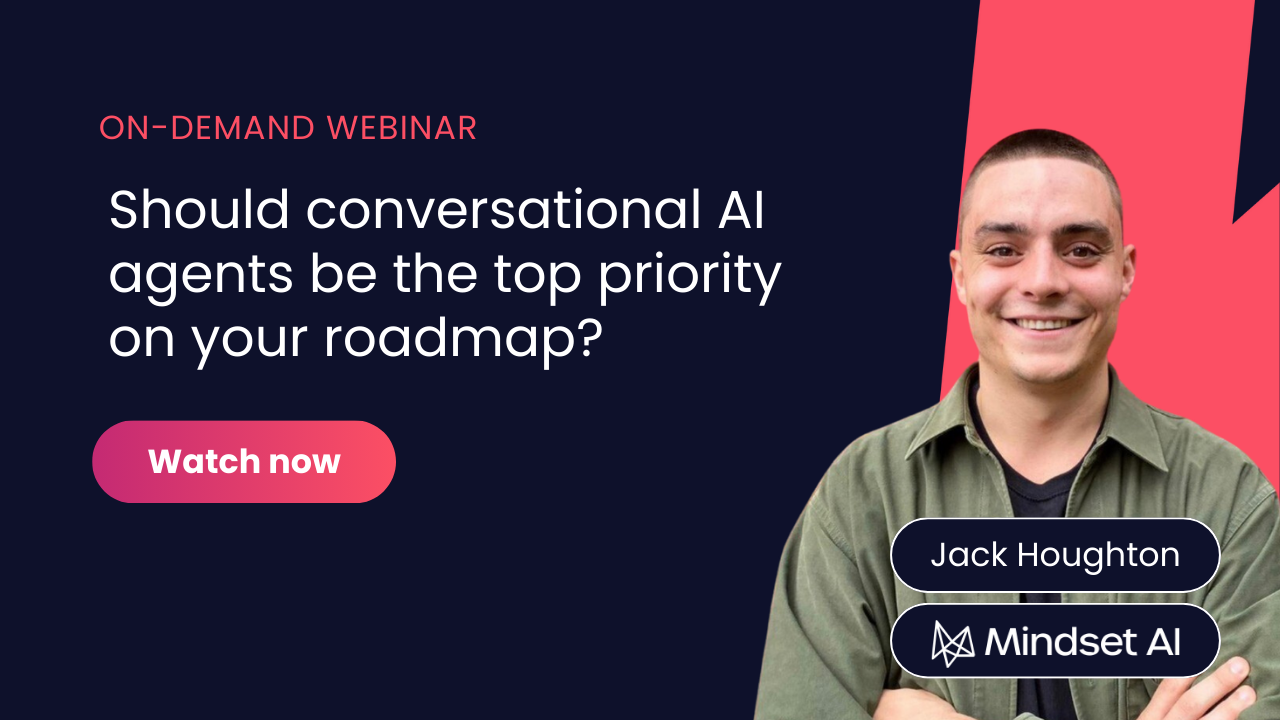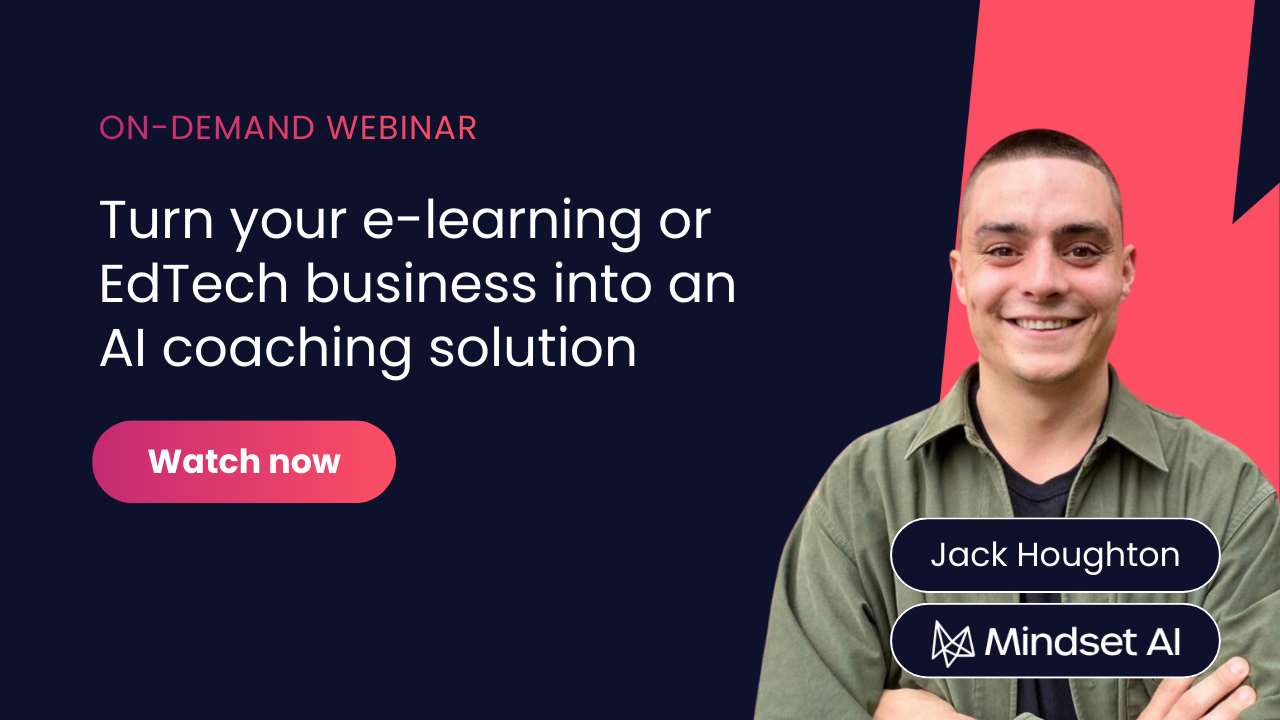What Happens To Entry-Level Jobs In The AI Era? | In The Loop Episode 18
.png)
Published by
Published on
Read time
Category
Are we experiencing the early realities of AI automation on the job market? It looks like that. And will AI replace entry-level jobs?
Whenever real reports or data are shared on topics such as employment and the impact of AI on society, we discuss them here. This report is the State of Tech Talent Report 2025 by SignalFire. It's based on tracking 650 million professionals across over 80 million organizations. This data, plus the World Economic Forum's latest employment report, is fascinating. The rise of AI and automation in 2025 is starting to lead to an erosion of traditional entry-level roles.
It's creating a widening disconnect between workforce automation and early career job prospects. As companies delegate more routine tasks to AI digital labor, they're cutting back on junior hires and training programs that many people relied on to get into work.
This has sparked considerable debate. Is this AI or just macroeconomic factors like post-COVID stabilization, a Trump administration, or a slowing global economy? What will the impact be on early career education and the future of work? Do employers have a structural obligation to develop the next generation of talent, or do we let AI replace many junior roles and tasks?
In today's episode, we'll cover all those different questions. This is In The Loop with Jack Houghton. I hope you enjoy the show.
Will AI replace entry-level jobs? State of Tech Talent Report 2025 breakdown
The best place to start is with the data, as new research show a significant decline in junior hiring across the tech industry.
This SignalFire report shows entry-level hiring has collapsed, with new graduate recruitment in technology companies down by over 50% since 2019. By 2024, recent grads made up about 7% of new hires at major technology companies, which is half the pre-pandemic number. The trend continues, with fresh graduates representing fewer than 6% of new hires. Even as overall hiring has rebounded from the pandemic, junior hiring continues to decline and lags significantly behind mid- and senior-level hiring. The result is potentially this lost generation of people who can’t get a job in finance, media, and technology.

The World Economic Forum's Future of Work Report 2025 found that many of the declining roles are clerical or entry-level administrative positions which young workers have historically filled.
LinkedIn’s 2025 workforce data also found that entry-level hiring is slowing down. In the US, overall hiring was down 6% year-over-year in 2025, and young graduates are affected disproportionately. A notable example is the unemployment rate for new college graduates, which stands at 30%, compared to 18% for the general workforce. So, new graduates are clearly struggling to find that early foothold into the employment market.
There's a rise in what SignalFire calls an "experience paradox," where companies post junior ads but then fill them with someone who has significantly more experience, bypassing what you'd consider an entry-level candidate. There is an increasing obsession with lean business models. Much of this is driven by AI and AI agents—the idea that a company can be run by fewer people.
Employers are increasingly demanding that new hires be productive from day one, which leaves very little tolerance for on-the-job learning and new hires who lack extensive experience.
Don't get me wrong, a lot of this makes sense. AI is now performing many of the roles that an entry-level new hire fresh out of college would have previously performed. Junior staff might have spent their early careers doing routine work: drafting documents, pulling data together in spreadsheets, reviewing documents, and doing basic analysis. Many of those tasks, which might have been seen as frustrating drudgery by more experienced hires, are now handled quickly by AI tools. An AI agent can summarize a report in a single prompt. An AI agent can review data and identify basic trends.
A LinkedIn economic research analysis found that 63% of executives expect AI to take on many of those mundane tasks that entry-level employees used to do over the next three to four years.
The Brookings Institute's research found that AI will replace over half the tasks carried out by entry-level roles such as market research analysts, designers, and sales reps. That research found that senior roles involving judgment, problem-solving, and team management have up to five times lower risk of AI automation and replacement.

If you take anything away from the data right now, it suggests that automation will take on a significant portion of the work at the bottom rungs of the career ladder, which is built on routine, straightforward tasks.
The impact on traditional education
What does this mean for graduates and society as a whole?
Graduates will increasingly face new types of barriers to success. It's easy to see the end of that learn-on-the-job opportunity, or at least there will be fewer offers. For decades, entry-level roles were critical stepping stones to building experience.
This will change the way people perceive education and opportunities. Many people will have to reevaluate the premise of formal education because if entry-level roles vanish and degrees lose their value, what fills the gap? Many might bypass school and university completely, pursue bootcamps that are becoming increasingly popular, or go into entrepreneurship.
What worries me is that access isn't created equally.
Who gets to explore AI tools or learn the skill sets and proficiencies that employers now look for? Who can afford special certifications? These emerging gaps will only widen inequalities and further marginalize groups that are already disadvantaged. AI can easily introduce a new filter at the gate of employment, making it even more difficult for people to secure an opportunity.
Entry-level roles aren't just low-cost labor—they're the initial building blocks in a talent pipeline that over the years, produces managers, leaders, and innovators who build society together. It's not hard to imagine that many companies discussing the automation of their workplace will be frustrated by the exact same problem: not having enough talent to fill critical roles that AI cannot tackle.
The most important thing to tackle early is economic mobility. Historically, an entry-level opportunity has been a pathway for individuals to enter or remain in the middle class. If AI eliminates that step, the cost of getting started shifts to individuals—often through unpaid internships, gig work, or costly graduate programs. Those from less privileged backgrounds are always hit hardest in that situation.
This brings us to an idea gaining traction: sustaining a workforce isn't just the government's responsibility—it's the moral responsibility of employers. You could call this a social license to operate. Just like companies are expected to reduce their environmental impact, they will have to invest in human capital.
Options for reducing the impact of AI on entry-level jobs
Should companies solve this problem? There are many historical precedents.
For centuries, skilled trades like electricians or carpenters have relied on apprenticeships. It's normal for novices to earn and learn on the job under the guidance of a master who helps them develop their skills. In medicine, no one questions how important it is for a new doctor to have a residency to gain crucial experience.
Many European countries have had apprenticeships or dual education systems for a long time. Young people might split their time between paid work and training in Germany, Austria, and Switzerland. Apprenticeships are common in white-collar fields like IT and banking, not just blue-collar trades. This has become popular in the UK recently too, with government incentives and industry collaboration supporting these systems.
The outcome has often been lower unemployment rates for young people and a healthier transition from school to work. In Switzerland, around 70% of students take part in apprenticeships, and employers across industries take on trainees as a matter of responsibility. It's a cultural norm.
What might a realistic policy mandate for the future of education look like in the age of AI? There are different approaches, each with varying levels of government enforcement. Policymakers could require certain employers above a certain size or in AI-heavy sectors to publicly report their early career talent numbers and the training programs they offer.
A stronger step might require companies with a certain number of employees to dedicate a percentage of their workforce as early career hires. For instance, a rule could say that any tech company with 500 to 1,000 employees must have at least 2% or 5% of its staff in approved early career training programs.
Similar to the UK model, governments could require companies to spend a certain amount or percentage of their payroll or revenue on approved training programs—or, alternatively, pay a certain amount into a fund for workforce development.
Yes, there will be pushback against these ideas, and some I find more challenging than others. I'm not saying any of them are the right solution, but it's important to think about places where it's working and the cost of inaction.
Closing thoughts
Upon reflection, the signals in 2025 show a growing consensus that action will be needed to preserve early career development in the face of automation. While no country has yet pulled the trigger on an outright mandate that every AI-heavy company must do certain things to support the workforce, pieces are slowly moving in that direction.
Governments are already establishing infrastructure, task forces, pilot programs, and funding, while companies experiment with various solutions. The conversation is shifting from whether this is a problem to solve to how we should solve it.
I hope this culminates in some form of mandate, quasi-mandate, or just more of a culture of investment in the workforce and the future of our society. If we don't think about this soon, 2025 may be that inflection point where we recognized a disconnect and refused to do anything about it.
I hope you enjoyed today's episode. Thank you for listening. This was In The Loop with Jack Houghton, and I'll see you next week.
Book a demo today.



.png)
.png)
.png)
.png)
.png)
.png)
.png)
.png)
.png)
.png)
.png)

.png)

.png)


.png)
.png)
.png)

.png)
.png)


.png)
.png)
.png)
.png)
.png)

.png)

.png)
.png)
.png)
.png)

.png)
.png)


.png)
.png)
.png)

.png)
.png)
.png)

.png)
.png)
.png)



.png)






.jpeg)